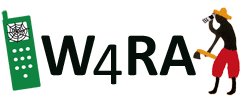In our modern society the increasing digitization of so many aspects of life holds a risk of social exclusion of various groups. People who find difficulties in accessing online information and navigating the Web are heavily disadvantaged, when information from the government, taxes, health services, legal information etc. is increasingly reachable as digital service only. In the Netherlands there is an important group at risk of social and digital exclusion: people with low literacy skills. Aware of the size and seriousness of this problem, the Dutch government is looking for solutions and commissioning studies how to digitally serve low literates. Research is being done how to design human-computer interfaces such that they are understandable for people with low literacy skills. Despite many efforts, there is still a lack of knowledge and best practices how this can be optimized. In search for innovative solutions, Derek van den Nieuwenhuijzen is investigating the usefulness of virtual agents in guiding low literate people how to complete online digital forms. Read more: PDF.
AUTHOR
Anna Bon
Member of the W4RA team; Centre for International Cooperation, Vrije Universiteit Amsterdam, The Netherlands.
104 posts
You may also like
“Sustainability assessment and ethical considerations are not commonly included as subtasks in the development of digital systems and services and receive less […]
The longstanding collaboration between the VU Centre for International Cooperation and the Computer Science Department of VU on the research theme ICT […]
Many farmers in Africa are in urgent need for weather forecasts and rain data services, to better plan and improve their harvests. […]
Mr. Jiri is a new mobile app for monitoring tree population in rural environments. Mr. Jiri was newly developed by W4RA to […]




